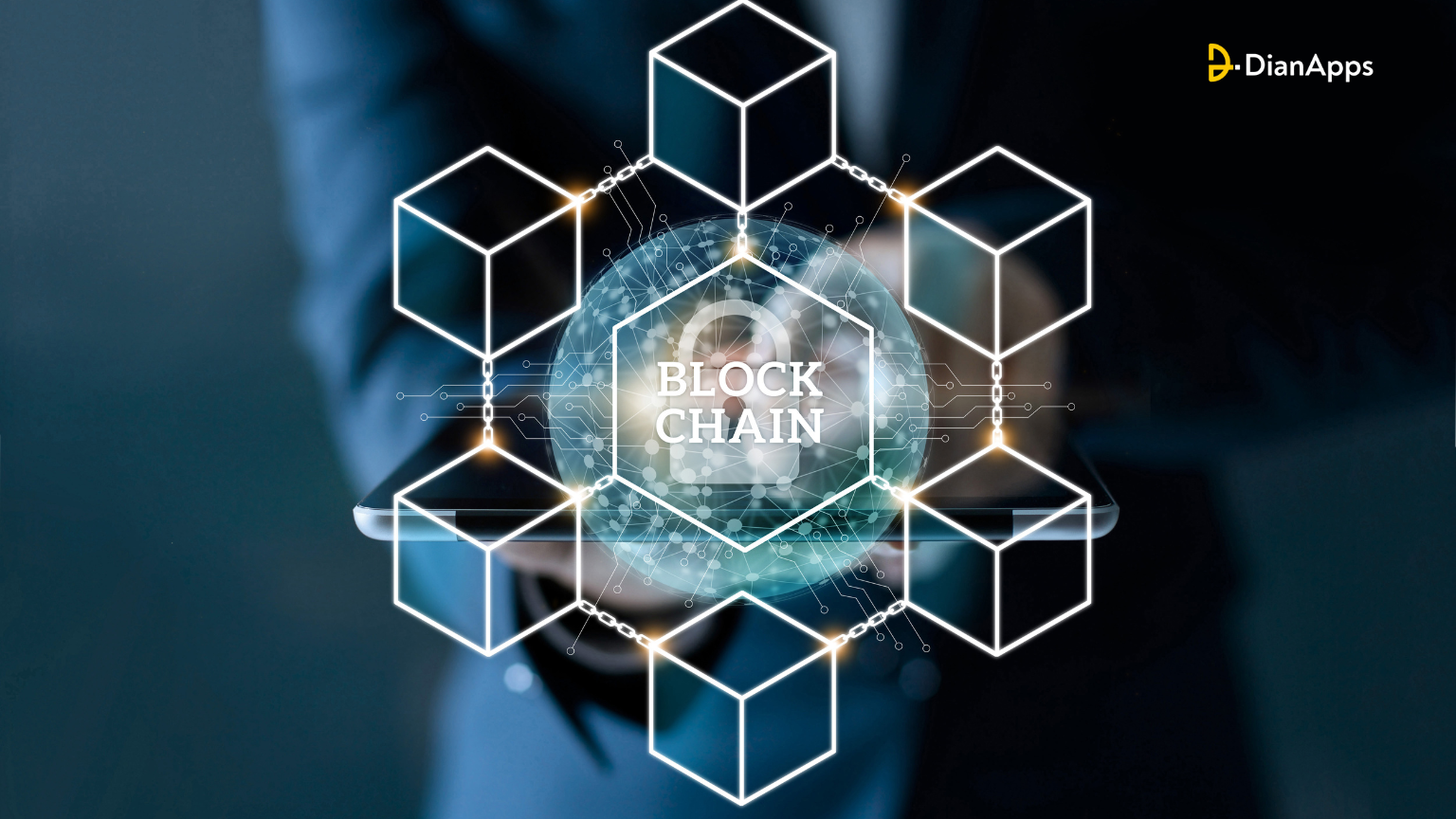Best Programming Languages For Blockchain App Development
Do you ever wonder why Blockchain suddenly became so well-known? Or what is it? Well, as the name indicates, Blockchain is actually a chain of blocks! The “blocks” in this case, however, are actually digital pieces of information that are linked together securely. Each of these blocks has digital data in the block, a timestamp, and a cryptographic hash function connecting it to the preceding block.
These blocks are intended to make changing the data very difficult, ensuring openness while also maintaining security.
Since it is incredibly difficult to alter these blocks, blockchain development services are truly synonymous with security. Because of this, this technique is quite common in industries like banking and finance, among others. In reality, when BitCoin was implemented, Blockchain gained popularity for the first time.
After all, consumers want the best possible security for their funds! Blockchain developers are thus in great demand right now. This post is all about the top programming languages for blockchain development, which will provide you with a competitive advantage over other developers.
Before we explore them, let’s know some popular statistics of programming languages that we are going to further discuss in the blog for blockchain app development.
Blockchain Programming Languages Critical Statistics
1. Solidity: According to the State of the Dapps report, as of April 2023, Solidity is the most popular language for writing smart contracts on Ethereum, with over 93% of all Ethereum contracts written in Solidity.
2. JavaScript: According to State of the Dapps, as of April 2023, approximately 3% of all dApps are built on JavaScript.
3. Go: According to GitHub’s Octoverse report for 2021, Go is the 13th most popular programming language on GitHub, with over 2.2 million repositories.
4. Python: According to GitHub’s Octoverse report for 2021, Python is the third most popular programming language on GitHub, with over 10 million repositories.
5. Java: According to GitHub’s Octoverse report for 2021, Java is the second most popular programming language on GitHub, with over 11 million repositories.
6. Rust: According to the Stack Overflow Developer Survey 2022, Rust is the most loved programming language for the fifth year in a row. However, it is not among the most widely used programming languages for blockchain app development, as it is relatively new and still gaining popularity.
It’s time to find out the best languages for building Blockchain in 2023 along with its pros and cons.
The Best Programming Languages For Building Blockchain Technology
#1. Solidity
Writing smart contracts for the Ethereum blockchain requires the usage of the contract-oriented programming language Solidity. The most widely used language for creating smart contracts on the Ethereum network, it was created by the Ethereum Foundation. Some benefits and drawbacks of adopting Solidity for blockchain development are listed below:

Pros:
- Easy to learn: Solidity is a high-level programming language that is simple to learn and comprehend and has a syntax that is comparable to JavaScript.
- Security: Solidity includes built-in security features that help developers write secure and auditable smart contracts. It has been designed to prevent common security vulnerabilities, such as reentrancy attacks, and to enable formal verification of contract code.
- Wide adoption: Solidity is the most widely used programming language for creating smart contracts on the Ethereum blockchain, hence it has a sizable developer community and a wealth of resources.
- Interoperability: Because of Solidity’s interoperability with other programming languages and platforms, smart contracts created with it may be utilised in a wide range of applications.
Cons:
- Limited functionality: Solidity is only intended to be used for creating smart contracts on the Ethereum blockchain, hence it might not be appropriate for creating other kinds of blockchain applications.
- Lack of maturity: Since Solidity is a young language that is still developing, it is possible that there are flaws and security holes that have not yet been found.
- Lack of documentation: New developers may find it difficult to get started with the language because of how limited and complicated the Solidity documentation may be to explore.
Why Solidity is the best programming language for blockchain development:
Due to its security features, widespread usage, and compatibility with various programming languages and platforms, Solidity is the finest programming language for blockchain development solutions, especially for Ethereum. The most extensively used language for creating smart contracts on the Ethereum network is Solidity. The Ethereum network is the most well-liked blockchain platform for decentralised apps.
Writing safe and auditable smart contracts, which are necessary for establishing trust in blockchain applications, is made possible by Solidity’s built-in security capabilities.
#2. C++
A broad variety of software applications, including blockchain apps, are created using the general-purpose programming language C++. The following are some benefits and drawbacks of using C++ for blockchain development:

Pros:
- High throughput and low latency: C++ is a compiled language with a reputation for being very performant, which makes it the perfect choice for creating blockchain applications.
- Flexibility: The building of blockchains is only one of the many applications that C++ may be utilised for. Its ability to handle both procedural and object-oriented programming paradigms makes it versatile and adaptable to a variety of use cases..
- Familiarity: Since C++ has been around for decades and is a widely used programming language, there is a sizable developer community and a wealth of C++ resources.
- Widespread use: Bitcoin, Ethereum, and EOS are just a few of the blockchain systems and protocols that employ C++. This indicates that C++-using blockchain developers have access to a large number of existing code libraries and tools.
Cons:
- Complexity: C++ is a sophisticated language that can be challenging for new programmers to learn and master.
- Memory management: Manual memory management is necessary in C++ and can be difficult and error-prone, particularly for big and complicated applications.
- Lack of built-in security features: C++ does not have certain other programming languages’ built-in security capabilities, which might make it difficult to build safe and auditable code for blockchain applications.
Why C++ is the greatest coding language for creating blockchains:
For a variety of reasons, C++ is among the finest programming languages for blockchain development, especially when creating the foundational architecture and protocols. First off, C++ is a fast language that is ideal for creating the intricate computations and algorithms needed for blockchain protocols like proof-of-work and consensus algorithms. Second, a lot of blockchain engineers utilise C++, and there are many existing code libraries and tools accessible for them.
Last but not least, C++’s adaptability and versatility make it a perfect language for creating low-level blockchain application components like nodes and clients, which need to be highly performant and have low-level hardware control.
#3. GoLang
Google created the open-source programming language Go, sometimes referred to as Golang, in 2007. Go is a statically typed, compiled language that was created with efficiency, concurrency, and scalability in mind. The following are some advantages and disadvantages of utilising Go for blockchain development:

Pros:
- Efficiency: Because Go is quick and efficient by design, it is perfect for creating blockchain applications that need a lot of throughput and little latency.
- Concurrency: Go includes built-in concurrency support, allowing it to manage numerous tasks at once. Because of this, creating blockchain applications that need parallel processing is much simpler.
- Scalability: Go is built to be scalable, which implies that speed won’t suffer when handling big volumes of data and traffic.
- Safety: Go has built-in safety features, such as memory safety and garbage collection, that help prevent common programming errors and improve the security of blockchain applications.
Cons:
- Learning curve: Go has a unique syntax that may take some time for developers to learn, especially those who are unfamiliar with the language.
- Limited libraries: Although Go has a growing community of developers, it still has a smaller ecosystem of libraries and tools compared to more established programming languages.
- Limited expressiveness: Go’s simplicity and efficiency come at the cost of expressiveness, which means that it may not be as flexible as other programming languages for certain types of blockchain applications.
Why Go is the most effective programming language for creating blockchains:
A blockchain development business frequently uses Go due to its effectiveness, concurrency, and scalability. Due to these characteristics, it is a good choice for developing blockchain applications that need to be highly scalable and performant, such as decentralized exchanges, high-frequency trading platforms, and payment gateways. Go is also a more secure option for creating blockchain apps, which is critical in the blockchain industry where security is of utmost importance.
Finally, Go is a cost-effective option for developing blockchain applications since it eliminates the need for proprietary software and licencing costs and has a growing developer community. Hire GoLang developer to take use of its distinctive capabilities, which make it a good competitor for blockchain development.
#4. Python
A high-level, interpreted programming language called Python is employed for a variety of purposes, including the creation of blockchains. The following are some benefits and drawbacks of using Python for blockchain development:

Pros:
- Ease of use: Python is a user-friendly programming language that is excellent for novices who are just learning to programme because of its straightforward syntax, which is simple to understand and write.
- Significant developer community: The Python programming language has a sizable and vibrant developer community that has produced a broad range of tools and frameworks that may be utilised for blockchain development.
- Versatility: Python’s versatility allows it to be used for a variety of tasks, from scientific computing to web development, and it integrates well with other programming languages.
- Efficiency: Although Python is an interpreted language, it is relatively efficient, making it a good choice for blockchain applications that require fast performance.
Cons:
- GIL: Python has a Global Interpreter Lock (GIL), which can limit the performance of multi-threaded applications.
- Speed: Although Python is relatively efficient, it is not as fast as compiled languages like C++.
- Memory management: Python’s automatic memory management can make it challenging to optimize memory usage in large-scale applications.
Why Python is the best programming language for blockchain development:
For a number of reasons, Python is a great choice for blockchain development.
1. Straightforward syntax and a sizable developer community make Python straightforward to learn and use, even for novices.
2. Python has a vast library of libraries and frameworks that can be used for blockchain development, including Pyethereum, Web3.py, and Chain. Python’s rich ecosystem means that developers can quickly and easily build blockchain applications without having to start from scratch.
3. Python’s efficiency makes it an excellent choice for blockchain applications that require fast performance. Hire Python Developers to seamlessly optimize the performance using techniques such as just-in-time compilation and parallel processing.
4. Python’s versatility makes it a good choice for building blockchain infrastructure, including nodes, wallets, and other tools.
#5. Rust
The systems programming language Rust is intended to be quick, effective, and secure. It was developed by Mozilla and is gaining popularity for blockchain development due to its unique features.The following are some benefits and drawbacks of using Rust for blockchain development:
Pros:
- High performance: Rust is a compiled language that generates quick and effective code, which makes it perfect for developing blockchain infrastructure and protocols.
- Memory safety: Rust is created to avoid memory-related issues like buffer overflows and null pointer dereferences, which may be a significant source of vulnerabilities in blockchain applications.
- Safe concurrency: Rust’s ownership and borrowing system ensures safe concurrency, which is important for building concurrent blockchain applications.
- Large community: Rust has a growing community of developers who contribute to a variety of blockchain-related projects, including infrastructure and tools.
Cons:
- Rust has a steep learning curve, which might be challenging for those who are new to systems programming.
- Rust is a very young programming language, therefore it can contain fewer libraries and tools than programming languages that are more widely used.
- Rust has a strict syntax that may be difficult to learn for developers who are used to more flexible languages.
Why Rust is the best programming language for blockchain development?
Rust is the best programming language for blockchain development due to its performance, memory safety, and safe concurrency features. These features are critical for building secure and efficient blockchain infrastructure and protocols.
Additionally, a number of blockchain-related projects are being supported by the sizable and expanding Rust developer community, thus there are many resources and tools accessible for Rust blockchain development.
Finally, Rust’s strict syntax and ownership and borrowing system ensure that developers write secure and efficient code, which is essential for building blockchain applications that are trustworthy and reliable
#6. PHP
Popular server-side programming language for web development is PHP. It was initially intended to be used for creating dynamic web pages, but it has subsequently been applied to many other tasks, such as blockchain development. The following are some advantages and disadvantages of utilising PHP for blockchain technology services:
Pros:
- Simple to learn: Particularly for those who are already familiar with C or Perl, PHP features an easy-to-learn syntax.
- Large community: PHP has a sizable and vibrant developer community that actively contributes to its development and offers assistance to new users.
- High performance: PHP is made to be quick and effective, making it the perfect language to use while developing high-performance blockchain apps.
- Integration: PHP can be easily integrated with other technologies, such as databases and web servers, which makes it a versatile language for blockchain development.
Cons:
- Security: PHP has been criticized for its security vulnerabilities, especially in the past. However, these vulnerabilities have largely been addressed in recent years.
- Scalability: PHP may not be the best language for building highly scalable blockchain applications, as it can be resource-intensive.
- Maintenance: PHP requires regular maintenance and updates to ensure that it remains secure and efficient.
Why PHP is the best programming language for blockchain development:
Since PHP is primarily intended for web development and might not have all the functionality required to create complicated blockchain apps, it might not be the best programming language for blockchain development.
While it is feasible to hire PHP developers for blockchain development, other programming languages like Solidity, JavaScript, and Go could be more appropriate. These languages contain capabilities that are optimised for creating decentralised apps since they were created expressly for blockchain development.
Also Read: Latest must have web developer skills needed in Front-end programming.
In addition, they have a bigger developer community that actively contributes to their growth and supports new users.
Wrapping Up
The most effective programming languages for developing blockchain applications rely on the particular goals and specifications of the project. The most popular smart contract language on the Ethereum blockchain is called Solidity, which is an excellent option for applications that need robust security features.
Due to their effectiveness and adaptability, other languages including Java, C++, and Python are also frequently used for blockchain development. Ruby’s efficiency and ease of use make it a viable option for some applications.
To provide effective blockchain development solutions, DianApps, a blockchain development company, keeps up with the most recent programming languages and technology.
Our team of skilled developers is knowledgeable in a variety of programming languages and frameworks, and we collaborate closely with our clients to fully grasp their objectives and produce solutions that satisfy them.
We assist our clients in developing cutting-edge and successful blockchain solutions that really add value to their businesses by utilising the most recent technology and best practises.




